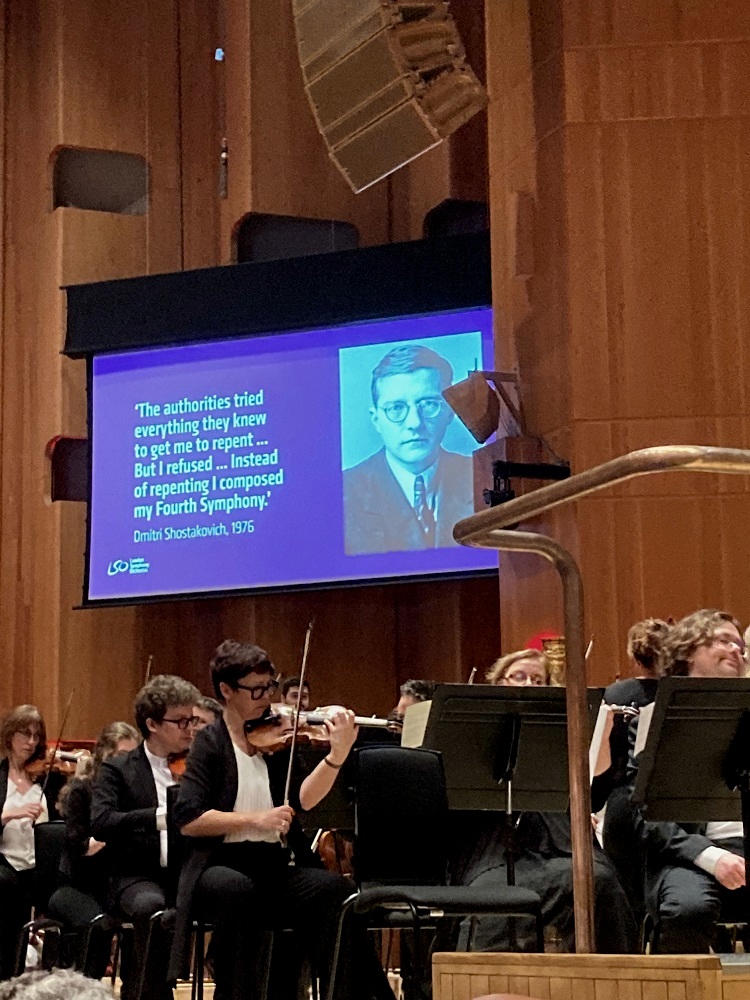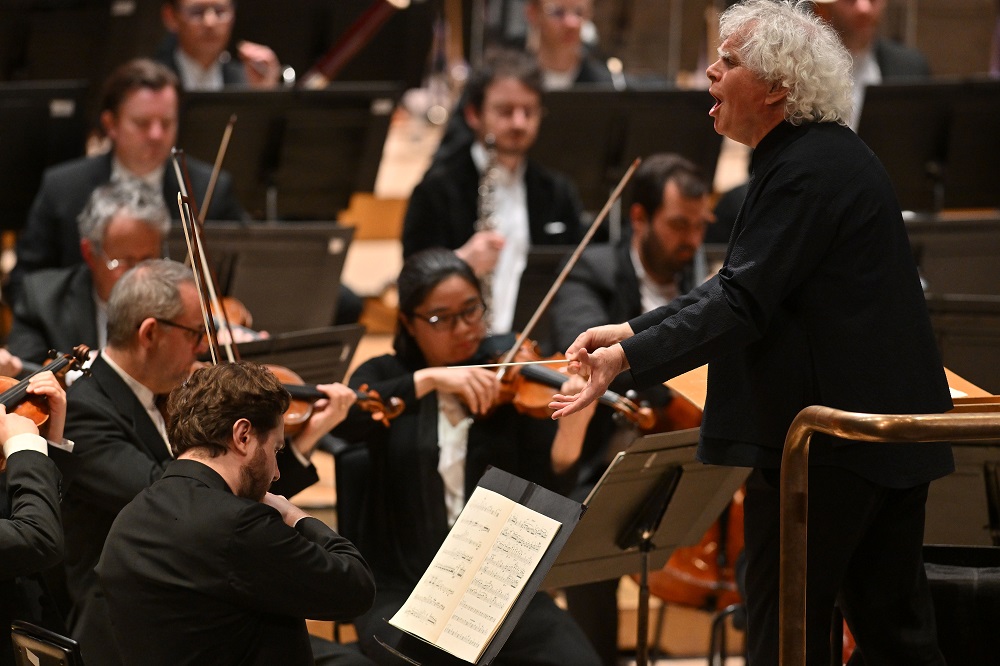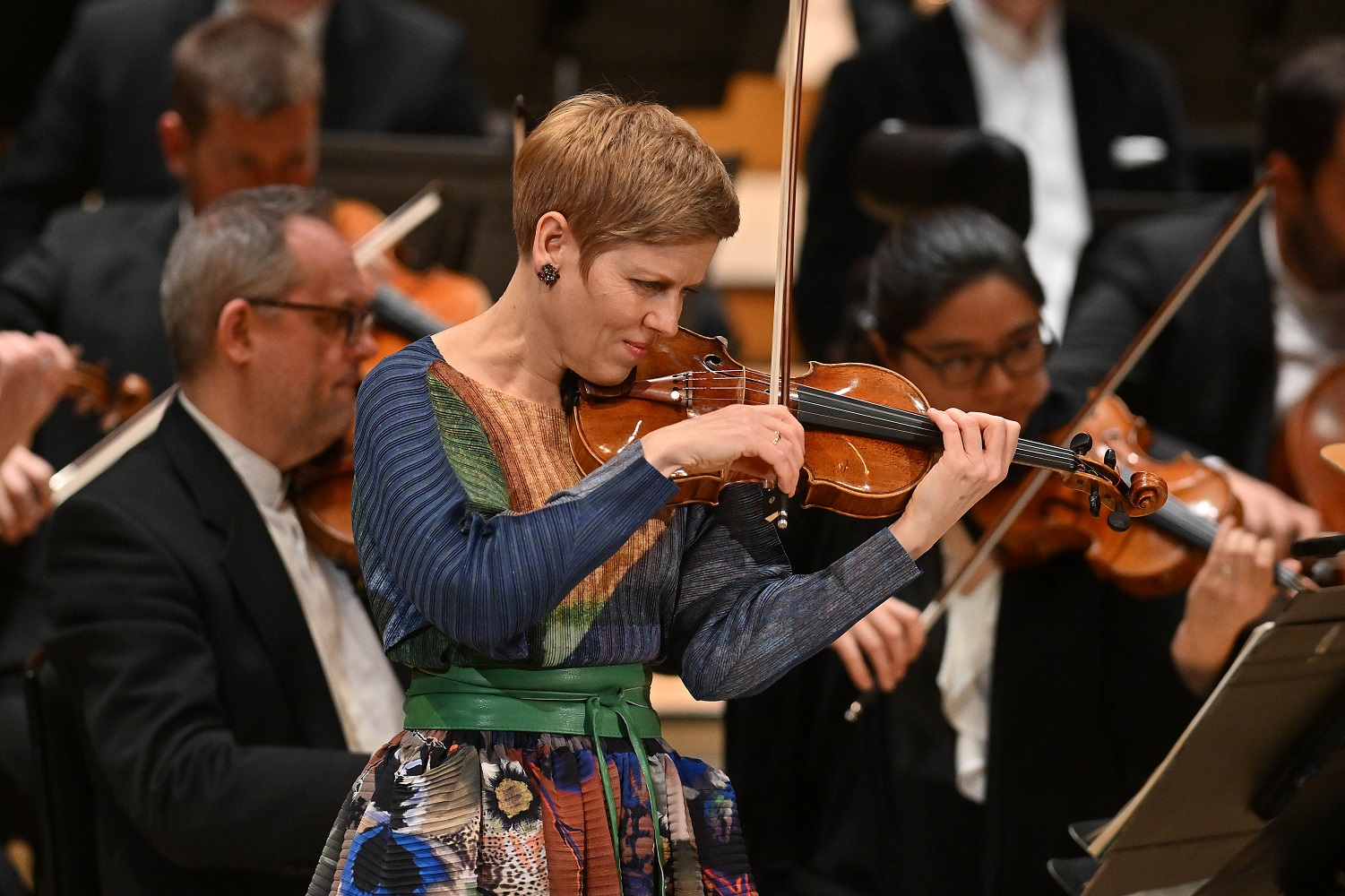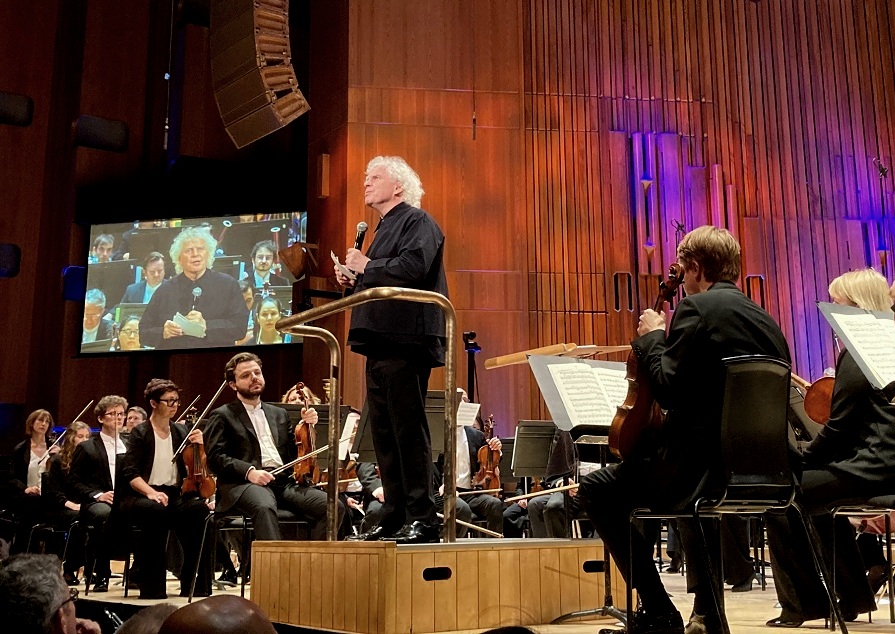The LSO’s apéritif hour “Half-Six Fixes” have an informality that usually works and sometimes doesn’t. But the first of this two-night run of Dmitri Shostakovich’s monstrous and terrifying Fourth Symphony was unforgettable. Panels on the auditorium walls greeted the audience with a portrait of the composer and his famous note: “The authorities tried everything they knew to get me to repent… But I refused. Instead of repenting, I wrote my Fourth Symphony”.
When Simon Rattle took to the podium he explained, for anyone who did not already know, the story behind them: pocket Shostakovich in 20 impassioned minutes, with illustrations from the orchestra. Young Shostakovich was “toast of the town” in 1936, with his opera Lady Macbeth of Mtsensk playing concurrently at three Moscow theatres, said Rattle. Until one evening, when Commissar Josef Stalin went “to see what all the fuss was about” and left, disgusted, during the performance of Shostakovich’s feminist, antiheroic masterpiece of modernism. The ensuing critique and threat, published in Pravda, would haunt Shostakovich for the rest of his life, on a knife-edge between his creative genius, humour and morality – and the KGB’s steps on the stairway. Ready to be taken to the gulag at any moment, Rattle recalled, Shostakovich sometimes slept on the doorstep of his apartment, with a suitcase packed, so his family would not be disturbed, should the arrest occur at night.
 Stalin’s banal, communist view of what music should sound like would be offended at every level by the epic violence and scathing irony of the Fourth Symphony on which Shostakovich was working at the time. The composer duly withdrew it while in rehearsal; this music was, the musicians urged, “a suicide note”. It was premiered a quarter-century later in 1961, eight years after Stalin’s death, and even then – the conductor Kirill Kondrashin told Rattle – no other would touch it.
Stalin’s banal, communist view of what music should sound like would be offended at every level by the epic violence and scathing irony of the Fourth Symphony on which Shostakovich was working at the time. The composer duly withdrew it while in rehearsal; this music was, the musicians urged, “a suicide note”. It was premiered a quarter-century later in 1961, eight years after Stalin’s death, and even then – the conductor Kirill Kondrashin told Rattle – no other would touch it.
The LSO – invariably very good – becomes as great as any when it plays Shostakovich; the musicians palpably engaged, excited - setting themselves a challenge to which to rise afresh each time. The irony of this being that their accomplishment with the repertoire is in no small part due to the tenure of Valery Gergiev as Principal Conductor – a master of this music, but, er… also devotee of Russian President Vladimir Putin.
Musicians in a bigger orchestra than for any other piece by Shostakovich are faced with a terrifying colossus; a hurricane – dense and intense. It veers wildly from nightmare to resilience, from fear to defiance – and back. From urgency to reflection, from percussive violence and volcanic eruptions on full brass to droll quirks of irony and wit, especially in woodwind. Connected by a layer that struggles to manifest itself, of lyrical yearning on strings – at one point solo lead violin – for what should be, is perhaps unattainable, but valid and vital nonetheless. 
The players understand and convey subtle rip-tides beneath the apparent bedlam: not least sardonic references to Stalin’s favourite music, such as a Georgian folk song and what Rattle calls “The Nutcracker, played in hell” – done with goose-bump eeriness by principal flautist Gareth Davies. The piece is especially taxing for woodwind: haunting solos on cor anglais, wonderfully taken by Drake Gritton – ripples across the section, or sudden screeches and cries.
The drive towards the finale was played without relent: explosive eruptions, an accelerated heartbeat on double bass, a haunted five-note motif on piano – and this spectral ‘clicking’ to sign off and out. 
The LSO played Shostakovich with greater efficacy on the second night, but without the presentation, so that the first was more visceral, somehow, for Rattle’s remarks, and passionate commitment to the symphony’s aura, if not message: which was in itself an important contribution to the most embittered discourse in 20th Century music, spilled over into the 21st.  I last heard the LSO give Shostakovich’s Fourth under the late, great Bernard Haitink, in 2013, following a Guardian interview with the conductor. Haitink in conversation was one of those for whom defining Shostakovich in terms of political pressures around and upon him is an anathema. Rattle said something apparently to the direct contrary in his first-night presentation: association between politics and music is usually ill-advised, “but in Shostakovich’s case, it’s necessary, if not compulsory”. He then dedicated the performance to the memory and family of Alexei Navalny – he and Shostakovich “were describing the same place”, said Rattle.
I last heard the LSO give Shostakovich’s Fourth under the late, great Bernard Haitink, in 2013, following a Guardian interview with the conductor. Haitink in conversation was one of those for whom defining Shostakovich in terms of political pressures around and upon him is an anathema. Rattle said something apparently to the direct contrary in his first-night presentation: association between politics and music is usually ill-advised, “but in Shostakovich’s case, it’s necessary, if not compulsory”. He then dedicated the performance to the memory and family of Alexei Navalny – he and Shostakovich “were describing the same place”, said Rattle.
But although Rattle’s presentation sided with the former camp, the concerts seemed to carve an important middle way through the twain, focusing, as he put it, on the symphony as “soundtrack to (Shostakovich’s) psychology” – my emphasis - rather than brutal politics. A good and useful formulation, and that it certainly was, an inspiring articulation of that brilliant, complex mind, these two epic nights – all the more shattering for that.













Add comment